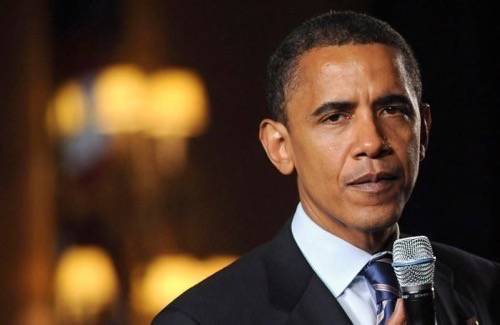
The Internet exploded in empty rhetoric Monday over Barack Obama’s Congress-short, six years late endorsement of “net neutrality,” an issue that will likely continue to go nowhere fast despite the president’s full-throated tone.
In a statement posted on the official White House website Monday, just two years before he leaves office, Obama said:
I believe the [Federal Communications Commission] should create a new set of rules protecting net neutrality and ensuring that neither the cable company nor the phone company will be able to act as a gatekeeper, restricting what you can do or see online.
Obama urged the FCC to reclassify broadband service as a public utility, making it legally possible for the commission to enforce the basic tenets of net neutrality. To date, the FCC’s attempts to enforce net-neutrality regulation based on other legal authority have faced a skeptical reception in the courts.
The basic idea would be to prevent cable and telecom Internet providers from blocking access to any website or service, throttling delivery speed or charging websites or services for faster delivery speed. The president’s scheme would also require those giants to be transparent with customers about how they’re handling traffic.
Intentions, Meet Politics
Obama’s statement, coming less than a week after voters handed unified control of Congress to the Republicans, produced a depressingly predictable political reaction. Sen. Ted Cruz (R-Texas), for instance, called net neutrality “Obamacare for the Internet,” to much Internet hilarity:
*takes bong rip*
"It’s like it almost makes too much sense."http://t.co/GQkMY7Me5j pic.twitter.com/KGR3Kb9Ngs— Mother Jones (@MotherJones) November 10, 2014
Here, of course, “Obamacare” stands as shorthand for “things Republicans don’t like.” In fact, ISP regulation would ideally prevent throttling Internet speed, which the delivery of some websites and services really really slooooooowwwww. You know, like the government.
Neither the president nor Congress have direct oversight over the FCC, but presidential signaling to independent agencies can embolden appointees who are already leaning in that direction. Meanwhile, the Republican Congress may not be about to do much against Obama’s veto, but things could be different under the next president come 2017.
For now, though, the FCC might already be leaning Obama’s way.
According to an Oct. 30 Wall Street Journal story, FCC chairman Tom Wheeler is considering a “hybrid” plan under which ISP service delivered to consumers would remain an information service, which, under the Title II of the Communications Act, gives the FCC very little power. On the other end, the services ISPs provide to content providers, such as websites and services, would be considered a utility, such as water or electricity, and under FCC regulation.
The Electronic Frontier Foundation, cautiously optimistic on Monday following the president’s endorsement, reminds us that such a “hybrid proposal” is likely not legally sustainable. Consider that anyone posts on Facebook is technically a content provider, and you get an idea of how complicated the legalities can get.
Buckle up. It’s going to be a bumpy ride.
Photo of President Obama courtesy of Shutterstock

















